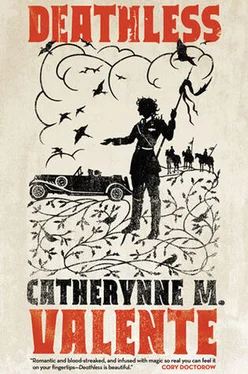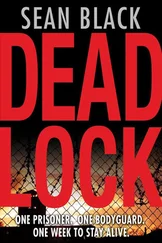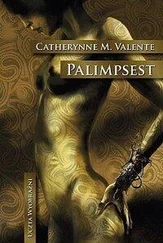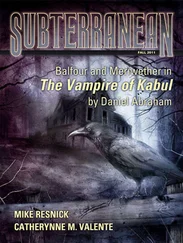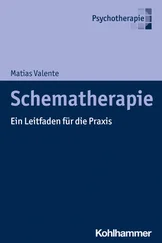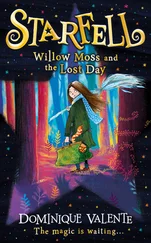A rough, ringing voice chided her. “Not an hour in Leningrad and he’s got you scrubbing floors.”
Marya smiled against the wet floor. She squeezed her eyes shut, relief lancing through her chest.
“Zvonok, oh Zvonya, I thought you’d gone.”
She turned her head and the domovaya stood there, her blond mustache ragged and full of split ends, her vest buttons mostly missing, patches on her brick-colored trousers. “Not that I don’t appreciate it,” Zvonok said. “It’s been so long since anyone cared about the floor. A cat could give up a grudge since this house has heard a holler to shut the door, the winter’s coming in! But then, the winter came in, didn’t it? It did, it did.” The domovaya nodded to herself.
“But it’s a fine house. Why would no one live here? And what about the Domovoi Komityet, all your friends?”
“Gone, with the families. Only I stay with the house. It’s my house. I married the old bastard. I’m stuck. A lesson some girls haven’t learned, exactly.” Zvonok sat down, cross-legged, near Marya’s nose. “Well, you know, Svetlana Tikhonovna died. A bad business, that. And her boys, well, they had no one to get meat for them, and they went begging one day and never came back. It happens to little ones. I like to think they fell into the Neva, the monsters. They stuffed up the mouse holes with their old socks. I needed those holes! And then the Abramov twins caught something, and pretty soon everyone had it, and there was a line outside the bathroom like at the cabbage shop, and then they didn’t bother with the bathroom anymore. And then the municipal hygiene authority just started carrying them all out, one by one by one. Some flat dead. Some not. Your mother was one of the last. And with them, their domoviye crawled out, clutching their stomachs, pulling their mustaches. We can’t get dysentery, you know, but we feel it when our family hurts.” Zvonok tugged her own mustache and looked at the clean rose on the floor. “I felt it when you caught that bullet in your shoulder. And the bayonet in your back. Such a lot of bother I suffer for you. Anyway, the Housing Committee tried to assign new tenants, but I didn’t want them.” The domovaya spat—carefully avoiding the clean patch Marya had opened up. “No, I didn’t! Fat and lazy, nothing but toadies and drunks! They put the Baghirlis—all eight of them—in your old room upstairs. And then the Grusovs showed up. Husband and wife, rat and ratitsa! They informed on their last household, so they got the rest of the house all to themselves! And no children between them! That bitch’s ferrety old womb would suffocate a babe, I’m sure. Well, Zvonok has opinions, and her opinions are this: to smoking hell with the lot of them. I broke things and rattled rafters until they ran off. Funny how no one’s asked for an assignment here since! Ha!” The imp slapped her knee.
Marya Morevna laughed a little, though it made her back hurt. “Oh, Zvonok, I have missed you.”
“Well, I can’t say you’ve moved up in the world. I saw that lug you brought in. Smells like an informant to me. Smells like a Grusov .”
“I don’t think so.” But then, she had not asked. She knew nothing about him, except the taste of his mouth. What else didn’t she know? Everything, everything.
“Bet Papa Koschei didn’t have you on your knees in filth sopping up his kitchen. Bet you had a kokoshnik all of sapphires and a striped cat on your lap.”
“Not exactly.” But gems there had been, and no weak pecking kisses. Perhaps she had been wrong. Perhaps hasty. But she could not think that, not yet; she had to try. Because what’s back there? The war and blood and silver splashes like stars.
“Well, after Viy came, sure. I felt that too, even so far off from you. But before that. Before, it was good, yes? Sturgeon eggs every night? Copper bathtubs?”
Marya smiled again. Her hair slid off her back. “Yes, it was good, Zvonya. Before the war.”
“Well, I will tell you something, Masha, my girl. You should have stayed put. I understand the need to ride a new horse every now and then—you think I haven’t gone and taken a good look at the wallpaper in another house every century or two? But you don’t trade a tiger for a fat little kitten, you know what I mean? It’ll just piss on your floor and ignore you when it’s not biting you for fish you don’t have.”
“When I saw him I thought I could curl up inside him and go to sleep and never wake up.”
“Men are no good for that, Masha. They’ll always want you working, when you’re not softening their fall into bed at the end of the day.”
“I wanted to be alive again. I wanted to be someone else.”
Zvonok stood up, brushing off her red trousers. She put her hands on her hips.
“Well, I hope lying on that floor like a broken dog is everything you hoped it would be.” She shrugged. Then the domovaya hopped up onto one foot, spun around three times, took a deep breath—and stopped. She squinted at Marya for a moment and reached into her vest pocket, pulling out something tiny and white. It grew bigger and bigger until Zvonok could hardly manage it herself. She let it fall onto the tile: a china teacup, with cherries on the handle, cracked in many places.
Zvonok jumped through the hoop of the handle, and vanished.
* * *
“Masha!” came the voice of Ivan Nikolayevich, booming through the house along with a bluster of last year’s leaves.
Marya Morevna started awake. She pushed herself up off the kitchen floor, her bones crackling their displeasure, her back still shaky, but it had released its awful grip. She brushed her black jacket clean—it was still too cold to take it off, and she had nothing else but her marshal’s uniform, which Ivan had said she should not wear on the street.
“I have good news, Masha!” Ivan called. His golden head appeared in the kitchen door, and his smile upon seeing her lit the room like a stove.
Behind him, a young woman with a long braid followed shyly, carrying a sleeping baby in her arms.
“The Housing Committee was so grateful to have someone willing to live in this damned old place, they’ve only asked that we share with one other family. Isn’t that extraordinary? Just think of the space! Marya Morevna, may I present Kseniya Yefremovna Ozernaya and her daughter, Sofiya. Comrade Kseniya is a nursing student, so we shall be very glad of her, I’m sure. Mashenka, did you try to clean the floor by yourself? With no soap or bucket? You see what an industrious wife I have, Kseniya!” Ivan was babbling. He was nervous; she could see it. Fear sluicing through him, that they should be found out. She was not his wife. Marya pitied him his need for no one to know it. Who could care? She thought of the Grusovs, and shuddered. What else did she not know about him? But she did not care. She only wanted him to take her to a bed and make her feel warm again, make her feel the sun on her insides.
But all she said was, “Good evening, Comrade Ozernaya.”
“Good evening, Marya Morevna,” said the young woman, and her dark eyes filled with such warmth and hope.
How lonely she must be, Marya thought.
“Where is the child’s father?” she said curiously, and not without coldness. She did not sniff at the propriety of it, but it was interesting.
“He died,” the young woman said bitterly. “Men die. It’s practically what they’re for.”
Ivan Nikolayevich cleared his throat. “Well, there will be plenty of time for sharing personal histories. Would you prefer the upstairs or the downstairs, Kseniya Yefremovna?”
“Please,” Marya hurried, before the girl could answer. “Take the downstairs. It is nearer the stove. For the infant.” And upstairs is home, she added silently.
Читать дальше
